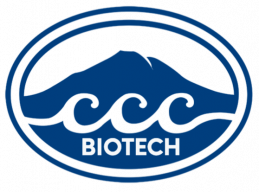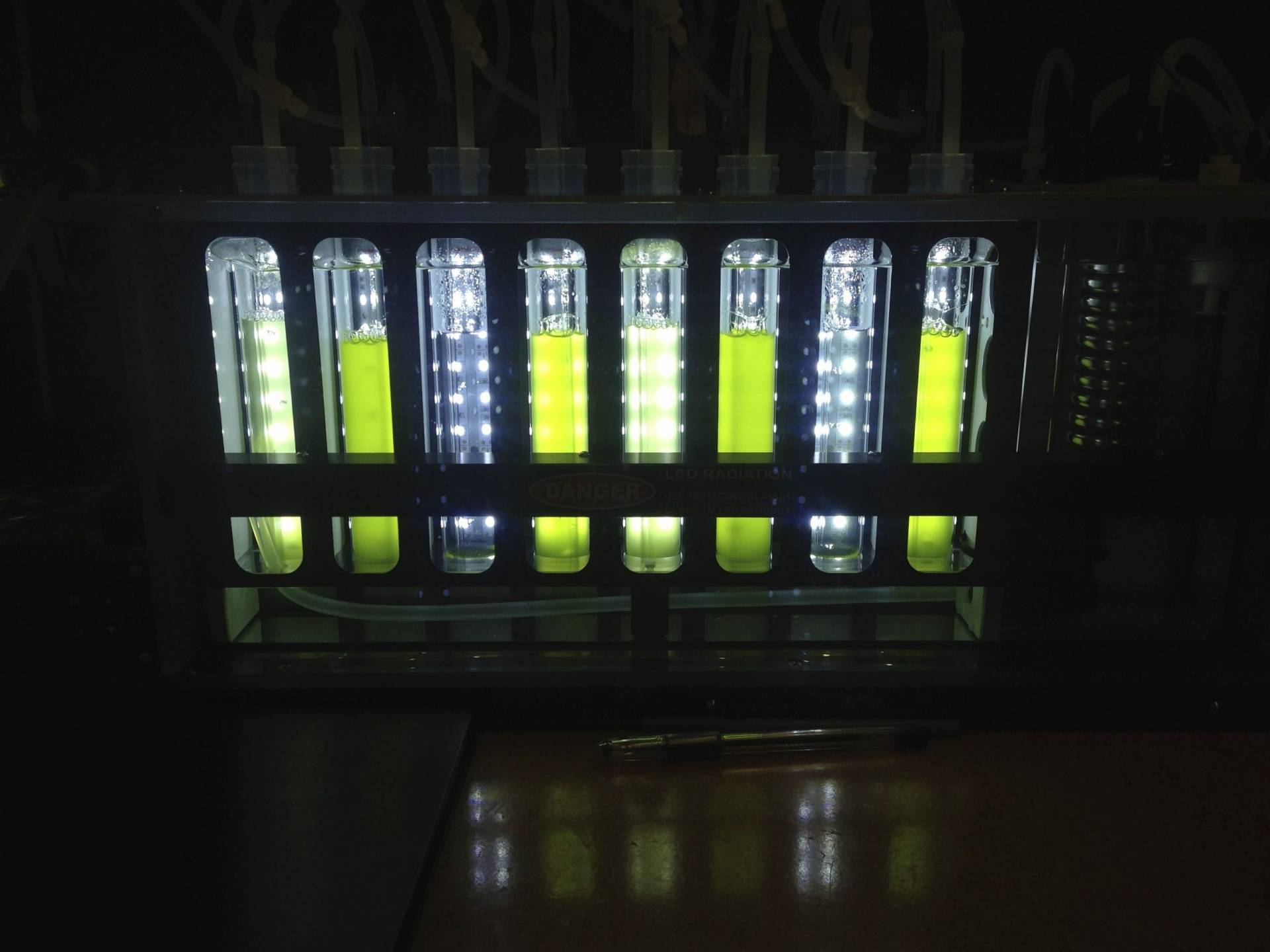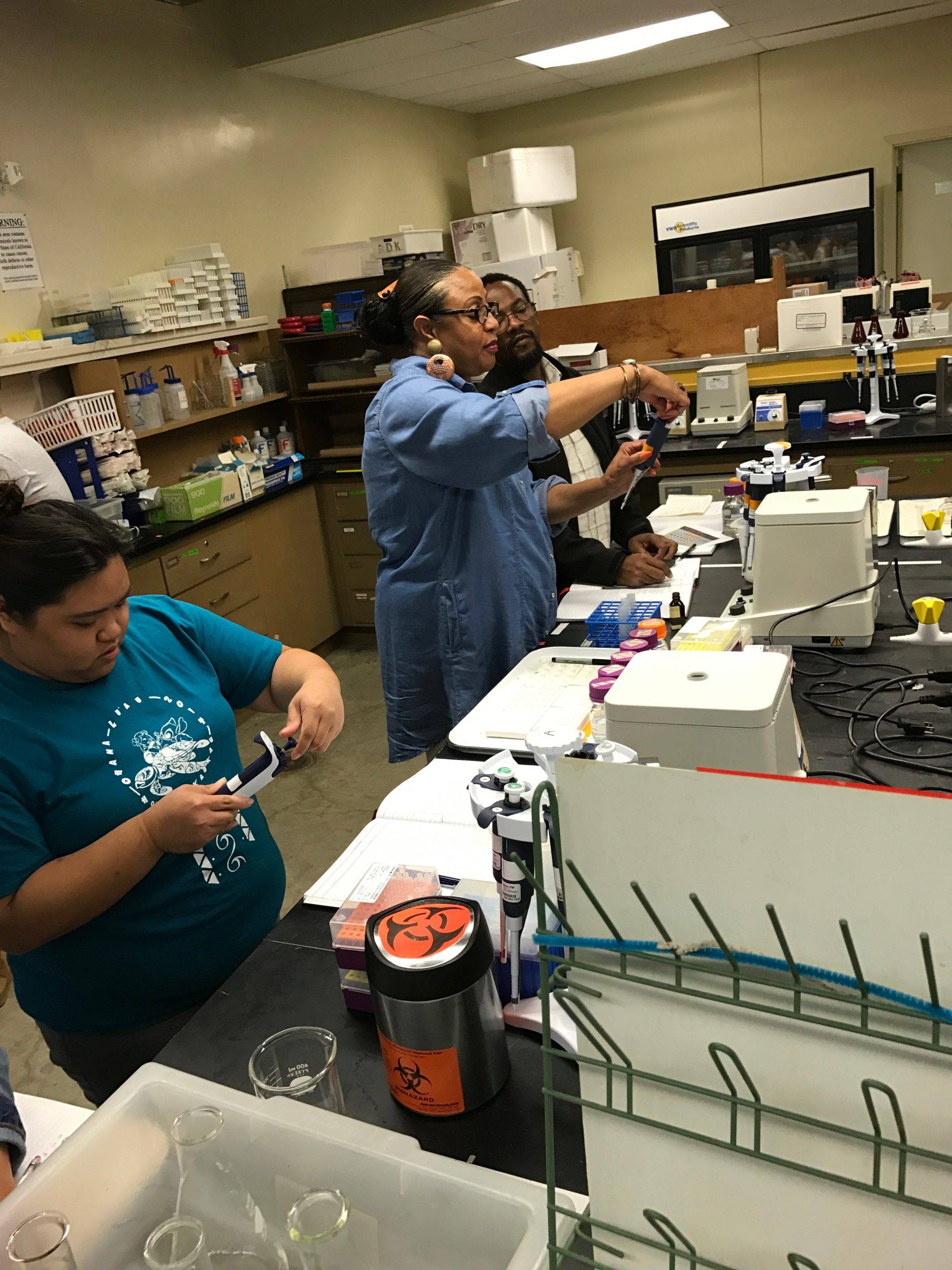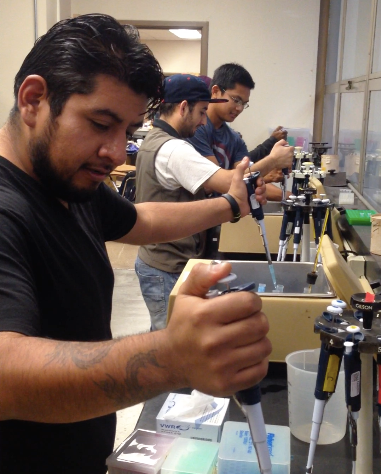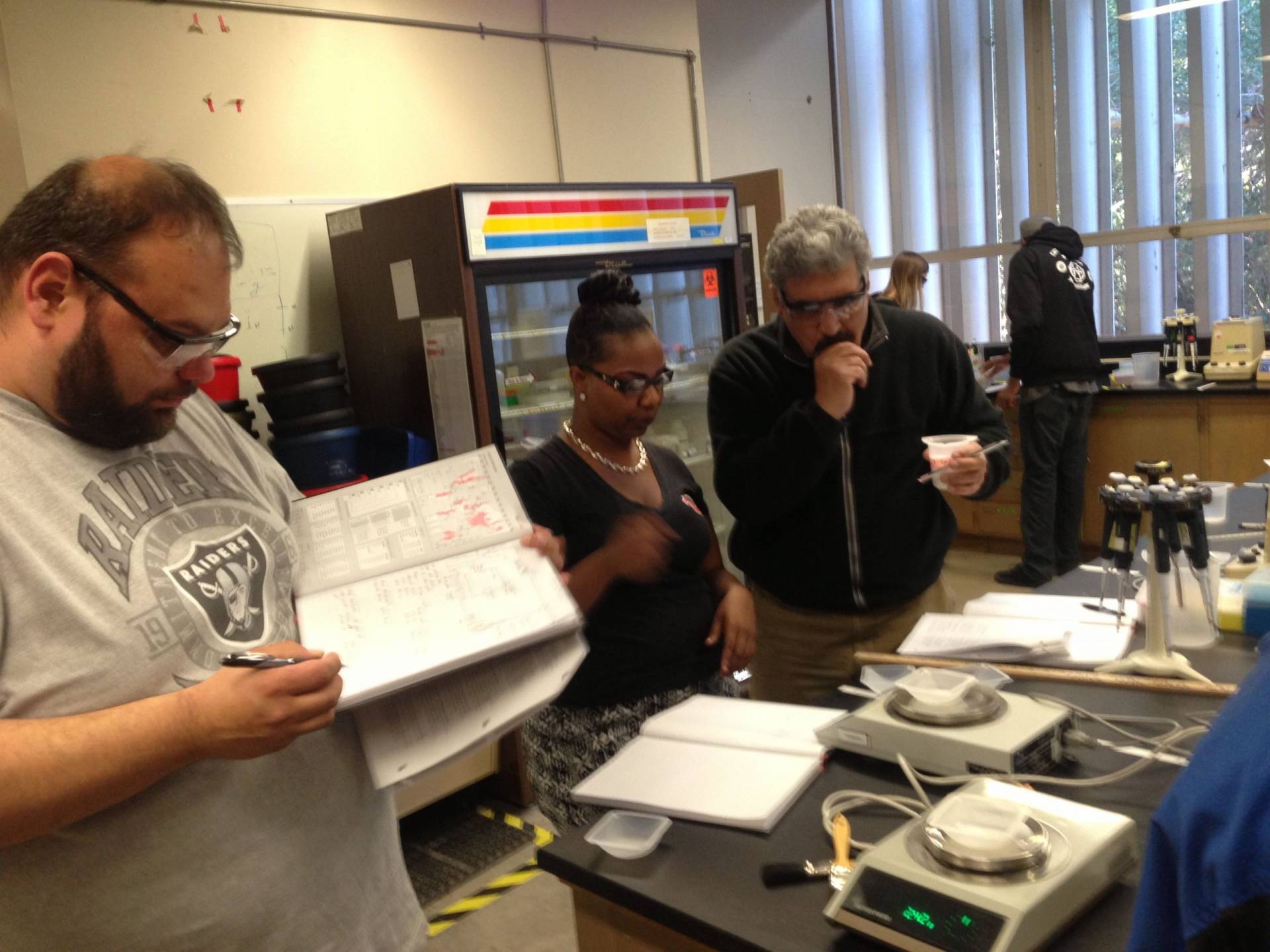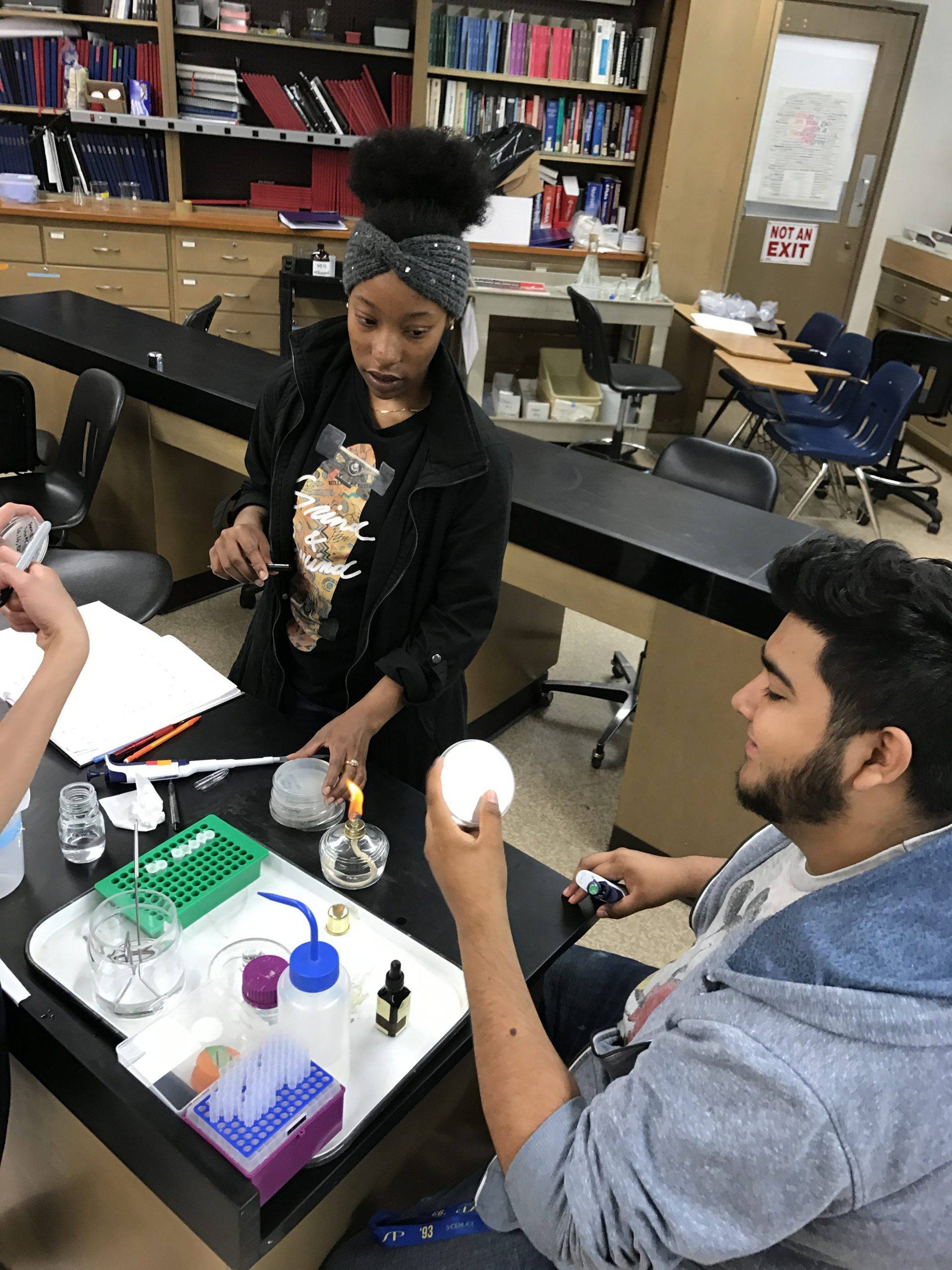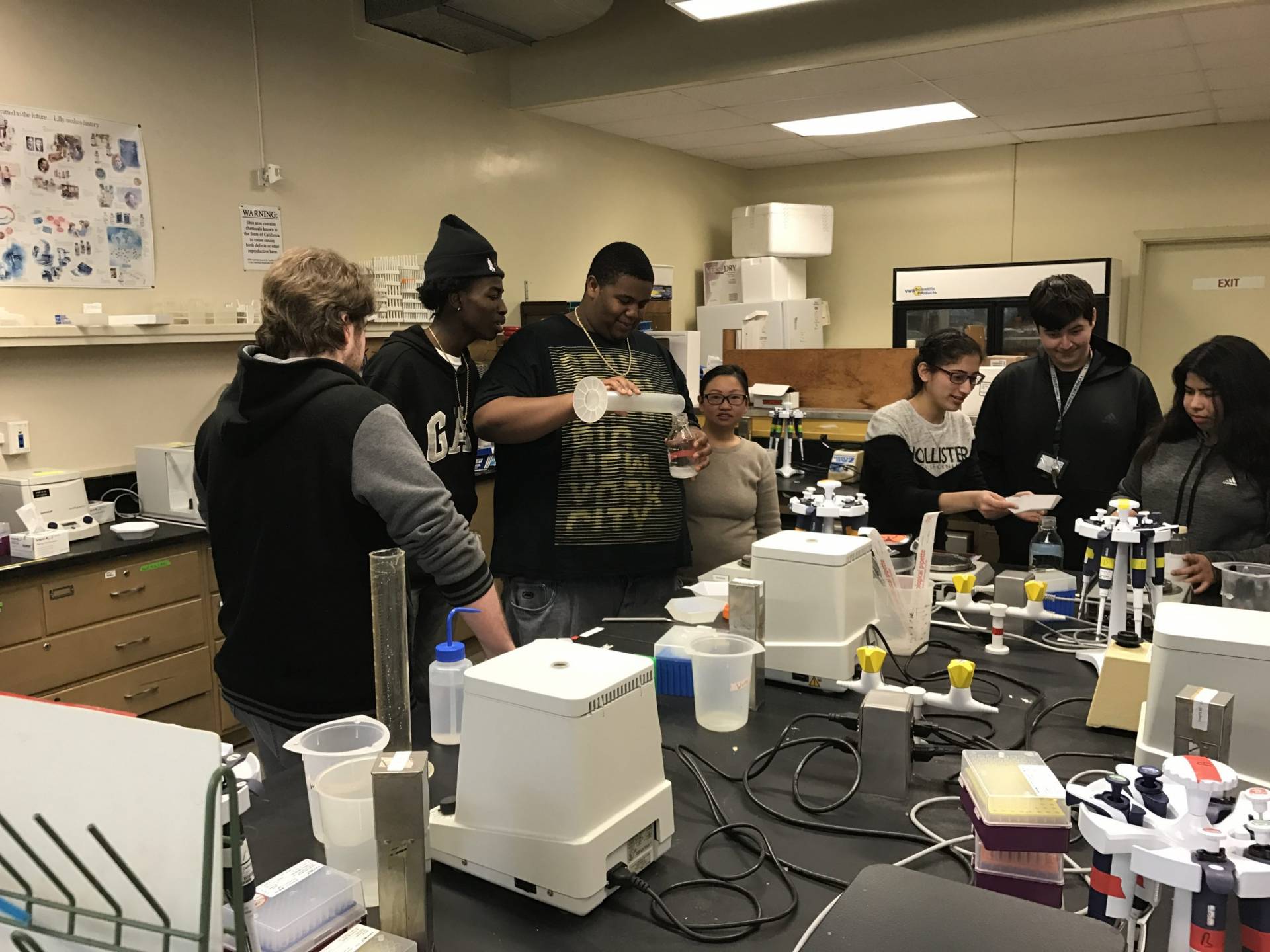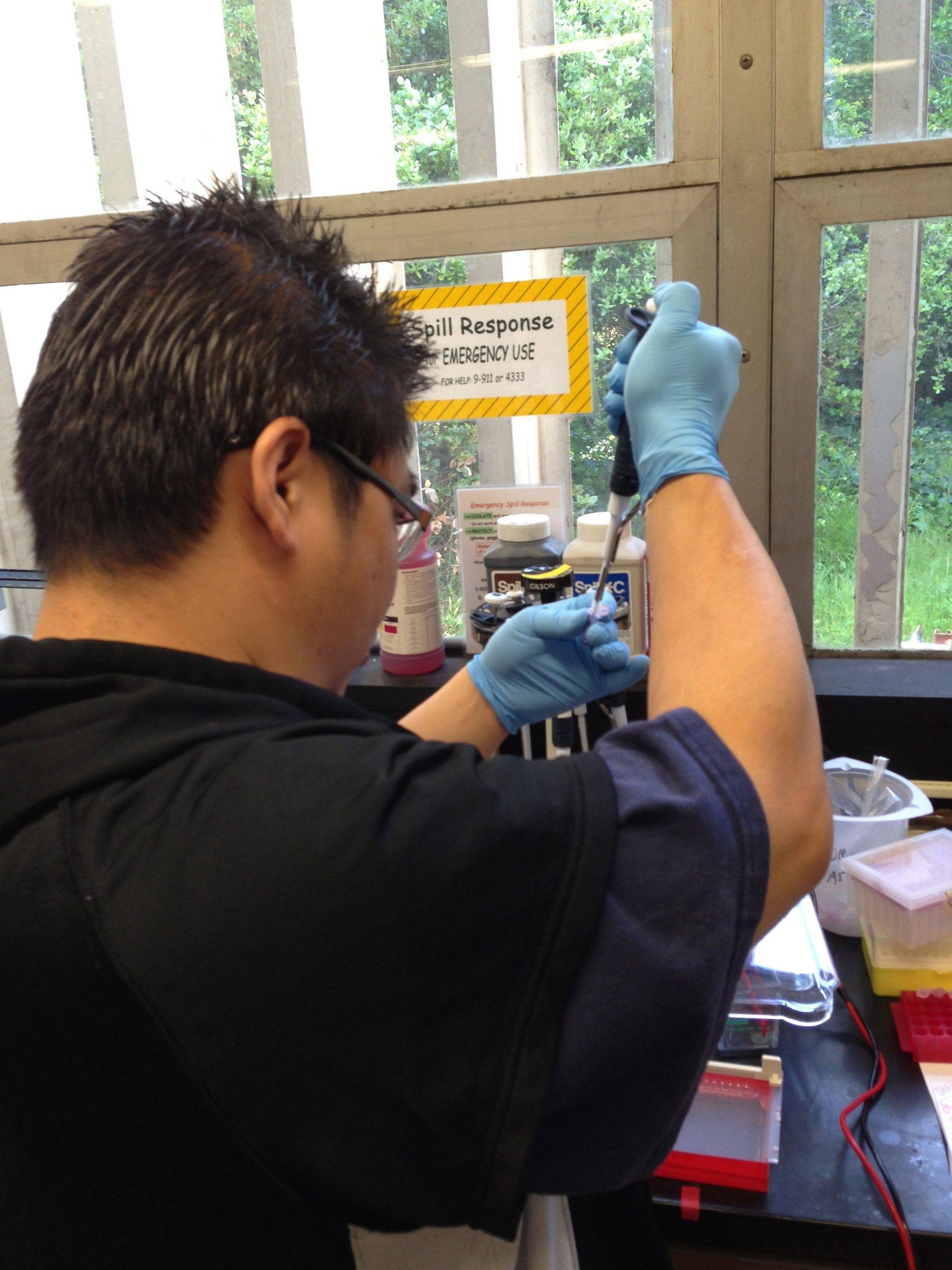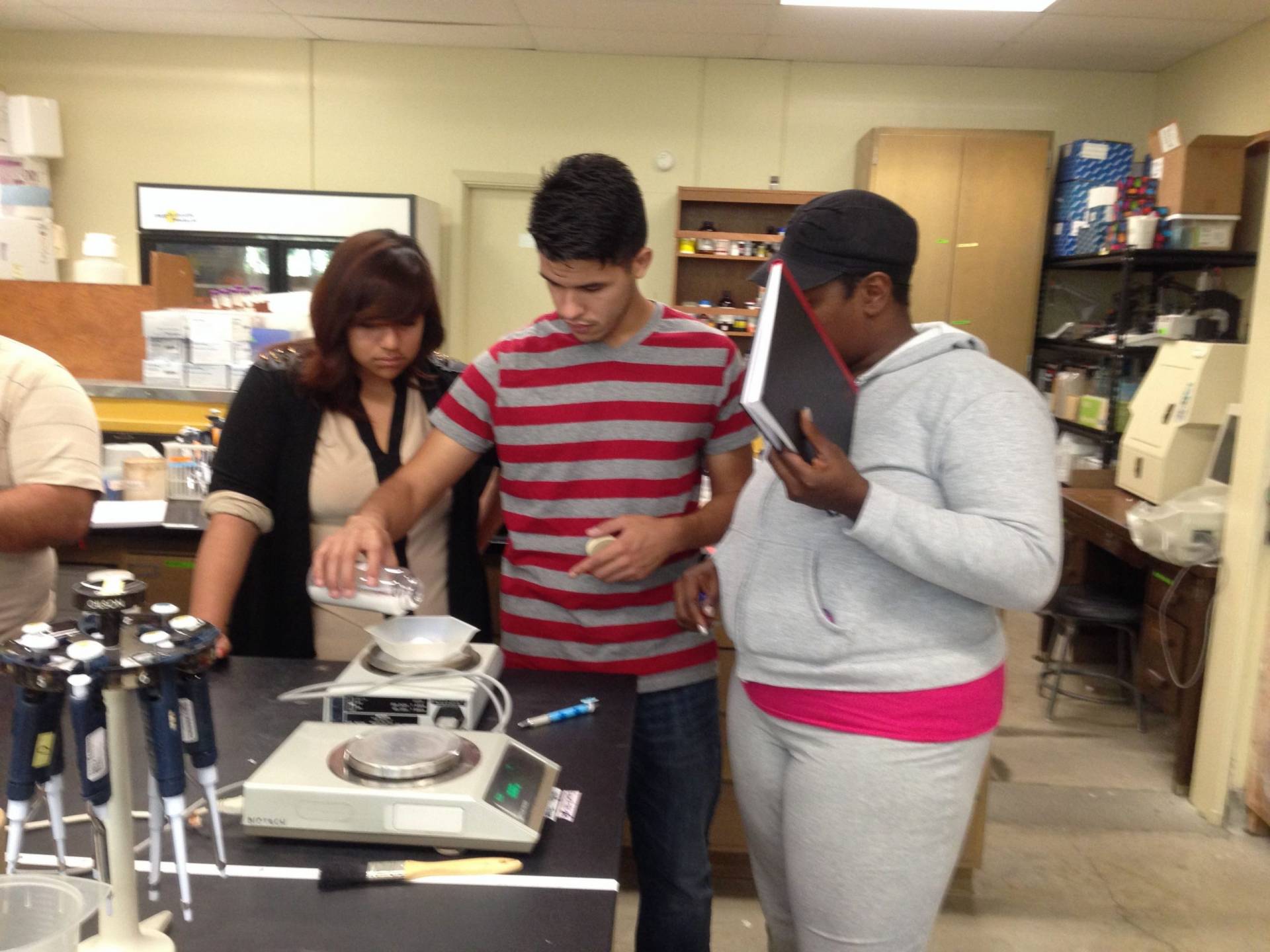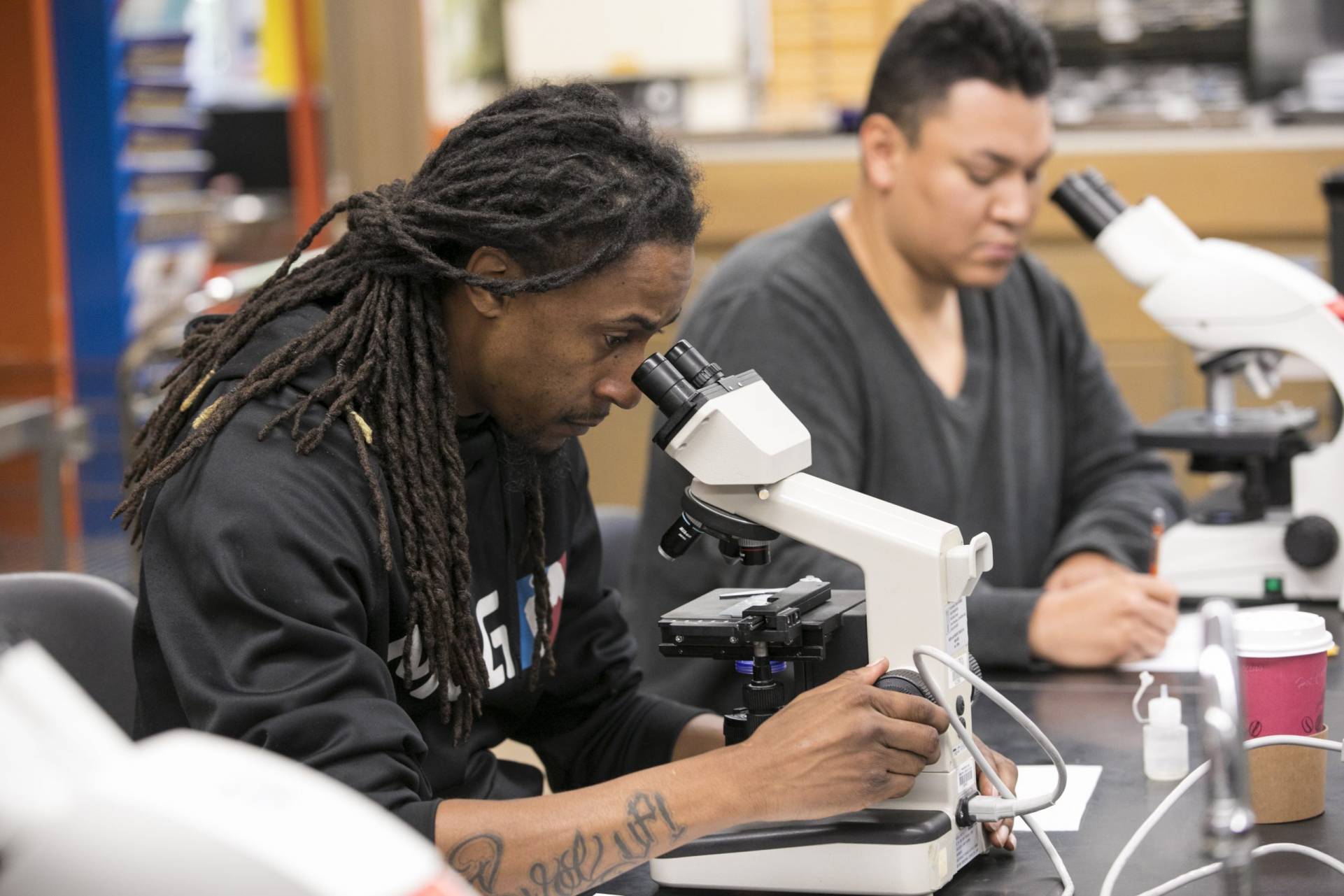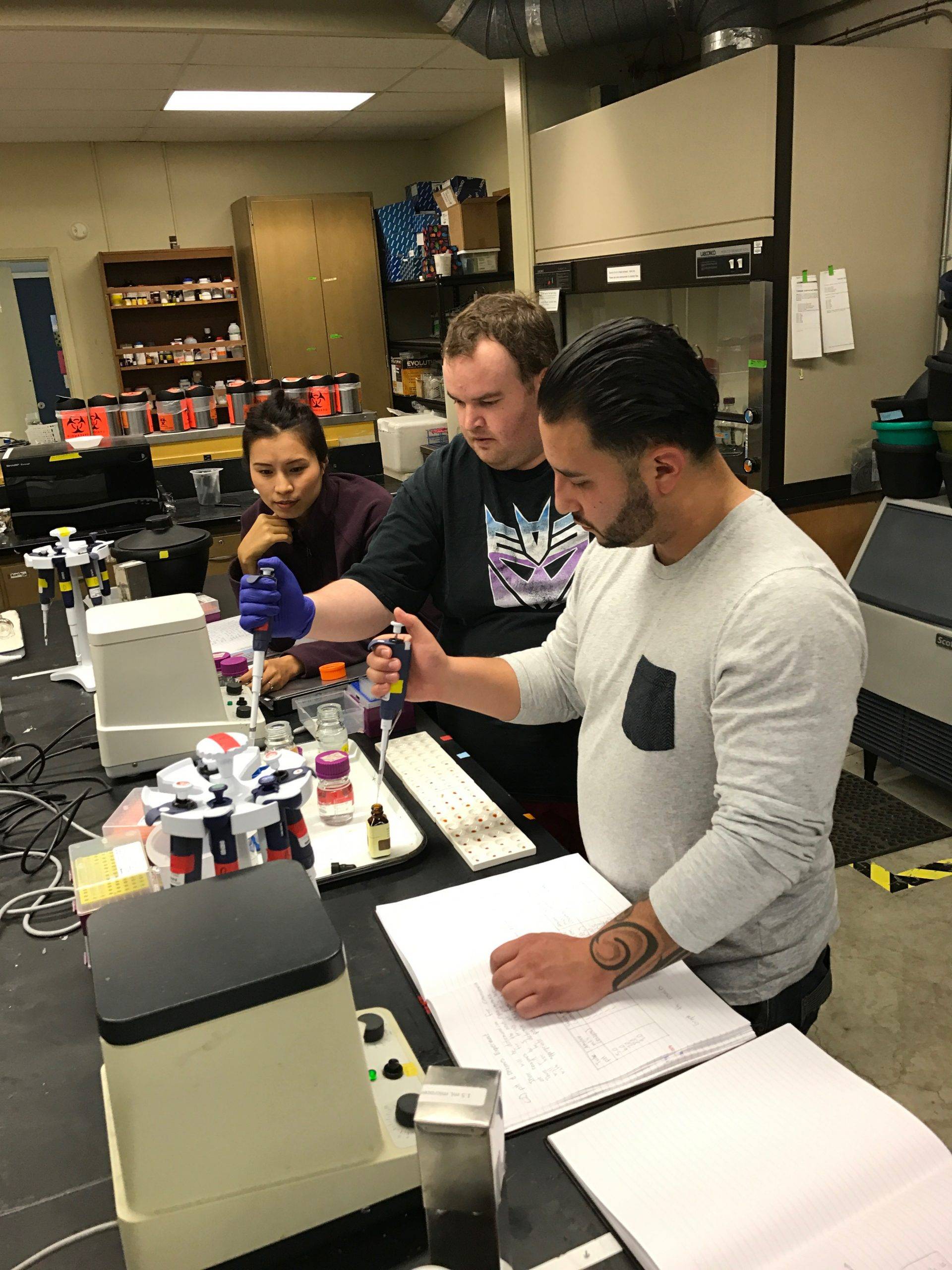BIOSC172L: Are you interested in science but don’t know for sure? BioSc172L gives you transferrable credit (IGETC area V, CSU B3), and a hands-on opportunity to do real experiments and explore the scientific process behind biotechnology. Practice using lab techniques, calculations, genetics and equipment, to carry out experiments that measure growth, metabolism, and biomolecule production. Content is appropriate for a wide range of students and professionals. Do you want to rock your pre-nursing requirements? BioSc106 is the “gateway”, but BioSc172L gives you the foundation you need to succeed. BIOSC172L is offered as a linked course. In the spring, take it with BIOSC873N, a free, 100% online and asynchronous course, with deadlines for submitting work once or twice a week. In the fall, the lecture and lab portions of BIOSC172 are taken together. Together with BIOSC172, this lab course meets pre-requisite requirements to BIOSC 119 and BIOSC 134.
Offered in Summer, Fall and Spring Semesters: for Summer 2024, BIOSC172L-6508 meets Mon, Tues, Wed 1:00PM-4:00PM. Starts June 10 ; for Fall 2024, BIOSC172L-6508 meets Wednesdays 5:50PM-9:00PM. Starts August 28.
What happens in this course?
Skills in
- Lab notebook
- Basic laboratory calculations
- Use of laboratory equipment (micropipette, balance, spectrophotometer, microscope, etc)
Knowledge of
- Cells, Genes, DNA and Proteins
- Creation and use of Standard curves
- Process of scientific analysis
Ability to
- Data presentation and analysis
- Prepare cellular extracts
- Monitor growth in a bioreactor
Who should take this course?
- Biotechnology students
- General Education: IGETC (area V) and CSU GE (area B3)
- Allied Health: Meets pre-requisite requirements to BIOSC 119, BIOSC 134
- Biology, Biochemistry, Chemistry majors (Introductory STEM lab for better success in CHEM120)
What type of jobs does it prepare for?
- Laboratory assistant
- Media prep assistant
- Manufacturing Technician
More details about Introduction to Biotechnology Lab here.
Part of certificates
- Biotechnology Assistant
- Biotechnolog Associates of Science
- Pre-Allied Health
- AA: Liberal Arts Math and Science
